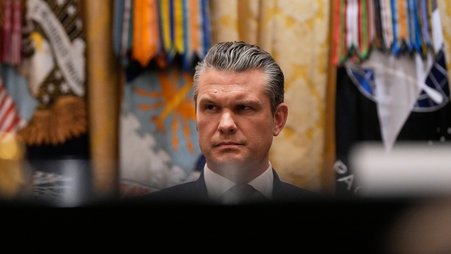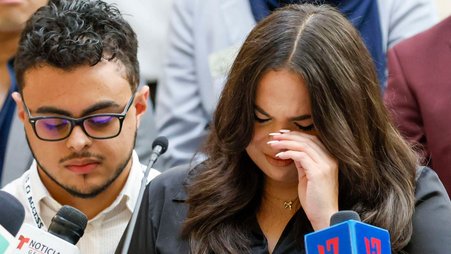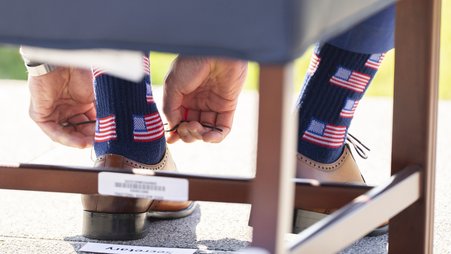Perhaps the most famous adage of journalism — get the truth and print it — continues to face attacks in our courts, and judges often fail to stop them.
A recent case comes from Victoria County, Texas, where last month a judge entered a temporary order preventing the publication of a book about alleged sexual harassment by former Phi Theta Kappa Honor Society director Rod Risley.
The court lifted the order on April 8, but only after the honor society had stopped the book from being published on the first day of its national convention, when it would have had the greatest impact.
Phi Theta Kappa, which sought the restraining order against author Toni Marek, hadn’t claimed that the information in her book is false. By its own admission, Marek received the information legally, either through public records requests or by speaking to former employees. But the honor society argued that the book shouldn’t be published because information in it is “confidential.” A judge initially agreed.
This isn’t the only order barring publication, known as a prior restraint, that Phi Theta Kappa has sought in recent times and won.
In a separate lawsuit, Phi Theta Kappa obtained an order prohibiting the competing HonorSociety.org from speaking about it online. Among other things, the order forbade HonorSociety.org from editing Phi Theta Kappa’s Wikipedia page or publishing independent reporting on Risley, regardless of whether those edits or publications were true.
A federal court of appeals recently struck down the order as overly broad.
The initial decisions granting the ban on Marek’s book and the gag on HonorSociety.org both suffer from the same glaring problem: the First Amendment.
The First Amendment prohibits prior restraints in all but the most extreme circumstances. In 1971, the Supreme Court even rebuffed the government’s attempt to stop the press from publishing the Pentagon Papers, documents the government claimed contained state secrets that could harm national security.
Censorship orders harm our freedom of speech no matter how long they last.
The Court has also repeatedly affirmed the First Amendment right to publish lawfully obtained, truthful information on matters of public concern.
But even though these censorship orders are supposed to be extremely rare and are almost always unconstitutional, prior restraints seem to be persisting.
One reason may be that judges are failing to recognize the First Amendment interests at stake when someone asks for a prior restraint on an "emergency" basis, as Phi Theta Kappa did in the case of Marek’s book. Because the honor society sought a temporary restraining order, Marek didn’t have a chance to appear in court and argue her side before the judge entered the initial order banning publication.
This isn’t a problem isolated to Texas. In February, a Mississippi court ordered The Clarksdale Press Register to remove an editorial criticizing Democratic Mayor Chuck Espy’s office for failing to properly notify the public of a special meeting, as required by state law. The city government claimed the editorial was defamatory, even though the city clerk admitted in an affidavit that she had failed to follow the notification law.
First Amendment experts immediately condemned the order. But as in Marek’s case, the city sought a temporary restraining order and the court granted it without giving the Press Register a chance to respond to the allegations or raise First Amendment arguments. Only after a national outcry did the city drop its suit and the court lift its censorship order.
Even though courts eventually ended the prior restraints on Marek, HonorSociety.org, and The Clarksdale Press Register, the fact that they entered them at all is a huge problem. Censorship orders harm our freedom of speech no matter how long they last.
It’s also a problem that nobody involved stopped to think about the First Amendment, at least at first. Both lawyers and judges need to do more to protect the constitutional rights of the public and the press.
Every lawyer in America is taught constitutional law, and even the most cursory legal research would turn up Supreme Court precedent on prior restraints. Lawyers seeking prior restraints have an ethical obligation to disclose law that cuts against their case to the court. But far too many emergency requests to censor speech fail to mention even the most well-known First Amendment decisions.
Judges, too, should hear First Amendment alarm bells ringing when they’re asked to restrain speech. When someone seeks an emergency order prohibiting speech, judges shouldn’t simply accept their arguments. They must independently research the law to be sure that their orders don’t violate the Constitution. They also can and should sanction lawyers who fail to mention any of the many cases prohibiting prior restraints.
Giving the proper attention and weight to freedom of speech isn’t too much to ask of our legal system. When lawyers and judges neglect their professional responsibility and neglect the Constitution, we all become vulnerable to censorship.





